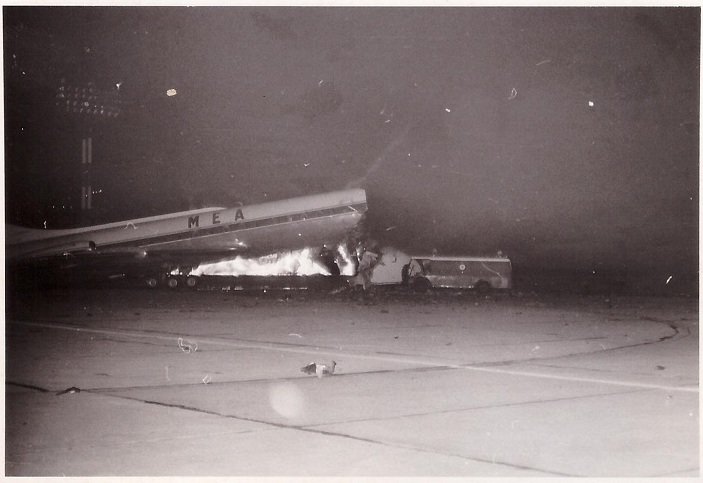On December 28, 1968, a significant event took place that would further escalate tensions in the already volatile Middle East. Israel conducted a military raid on Beirut International Airport in Lebanon, in retaliation for an attack on an Israeli airliner in Athens. This retaliatory action was carried out by a Lebanon-based Palestinian group, which had caused significant damage and loss of life. The Israeli raid on Beirut Airport resulted in the destruction of several Lebanese civilian aircraft, further fueling the conflict between Israel and Palestinian groups.
The roots of the Israeli raid on Beirut Airport can be traced back to the ongoing conflict between Israel and the Palestinian groups operating from Lebanon. The Palestinian Liberation Organization (PLO), led by Yasser Arafat, had established a presence in Lebanon and used it as a base for launching attacks against Israel. The PLO’s militant activities had become a major concern for Israel’s security, leading to a series of retaliatory actions.
The catalyst for the Israeli raid on Beirut Airport was the attack on an Israeli airliner in Athens on December 26, 1968. The Lebanese-based Palestinian group, Popular Front for the Liberation of Palestine (PFLP), claimed responsibility for the attack. The PFLP, led by George Habash, was one of the most radical factions within the PLO and advocated for armed struggle against Israel.
The attack on the Israeli airliner resulted in the deaths of several passengers and crew members, as well as significant damage to the aircraft. Israel viewed this act of terrorism as a direct threat to its national security and decided to respond with a military operation targeting the PFLP and its infrastructure in Lebanon.
On December 28, Israeli forces launched a daring raid on Beirut International Airport, which was known to be a hub of PLO activities. The Israeli Air Force conducted airstrikes, targeting the airport’s runways and hangars where the PFLP stored and maintained its aircraft. The objective was to cripple the PFLP’s ability to carry out further attacks against Israel.
The Israeli raid on Beirut Airport was swift and devastating. Several Lebanese civilian aircraft were destroyed, including passenger planes belonging to Middle East Airlines, Lebanon’s national carrier. The destruction of civilian infrastructure raised international concerns and led to condemnation from various countries.
The raid also resulted in civilian casualties, as the airport was not completely evacuated before the attack. The Israeli forces faced criticism for the loss of innocent lives and the destruction of civilian property. However, Israel justified its actions as a necessary measure to protect its citizens from terrorist attacks.
The Israeli raid on Beirut Airport had significant implications for the Middle East. It further escalated tensions between Israel and the Palestinian groups operating from Lebanon. The PLO and its allies vowed to avenge the attack and continued their armed struggle against Israel. The event also drew international attention to the conflict, highlighting the complex dynamics of the Israeli-Palestinian struggle.
In the aftermath of the raid, Lebanon filed a complaint with the United Nations Security Council, accusing Israel of violating its sovereignty. The Security Council condemned the Israeli action but failed to take any concrete measures to address the situation. The raid on Beirut Airport served as a stark reminder of the ongoing conflict and the challenges faced in finding a peaceful resolution.
To this day, the Israeli raid on Beirut Airport remains a significant event in the history of the Israeli-Palestinian conflict. It serves as a reminder of the cycle of violence and retaliation that has plagued the region for decades. The event also underscores the need for a comprehensive and lasting solution to the conflict, one that addresses the legitimate concerns and aspirations of both Israelis and Palestinians.
For more information about the Israeli raid on Beirut Airport (1968), you can refer to the following external references:
– [Link 1: History.com](https://www.history.com/topics/middle-east/israeli-raid-on-beirut-airport-1968)
– [Link 2: Britannica.com](https://www.britannica.com/event/Israeli-raid-on-Beirut-airport-1968)
Excerpt:
On December 28, 1968, Israel conducted a significant military raid on Beirut International Airport in Lebanon, in retaliation for an attack on an Israeli airliner in Athens. The raid resulted in the destruction of several Lebanese civilian aircraft and further escalated tensions in the Middle East. This article explores the historical context, implications, and consequences of the Israeli raid on Beirut Airport.

